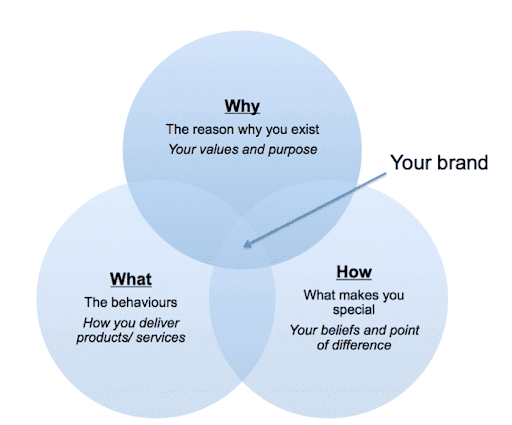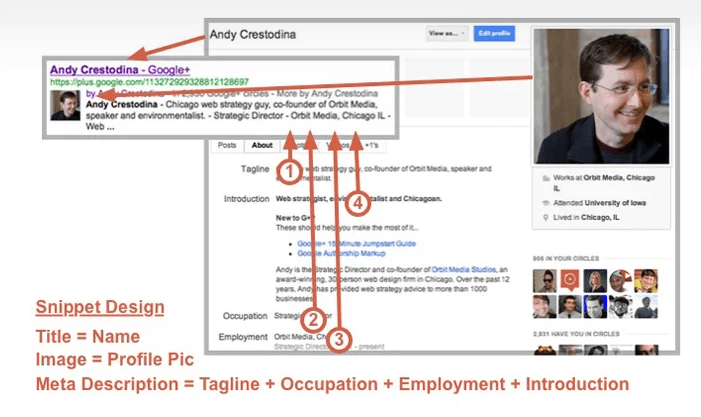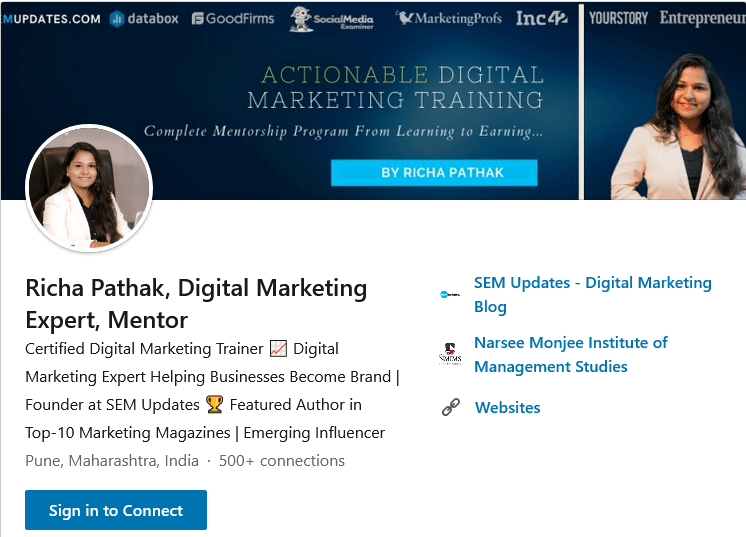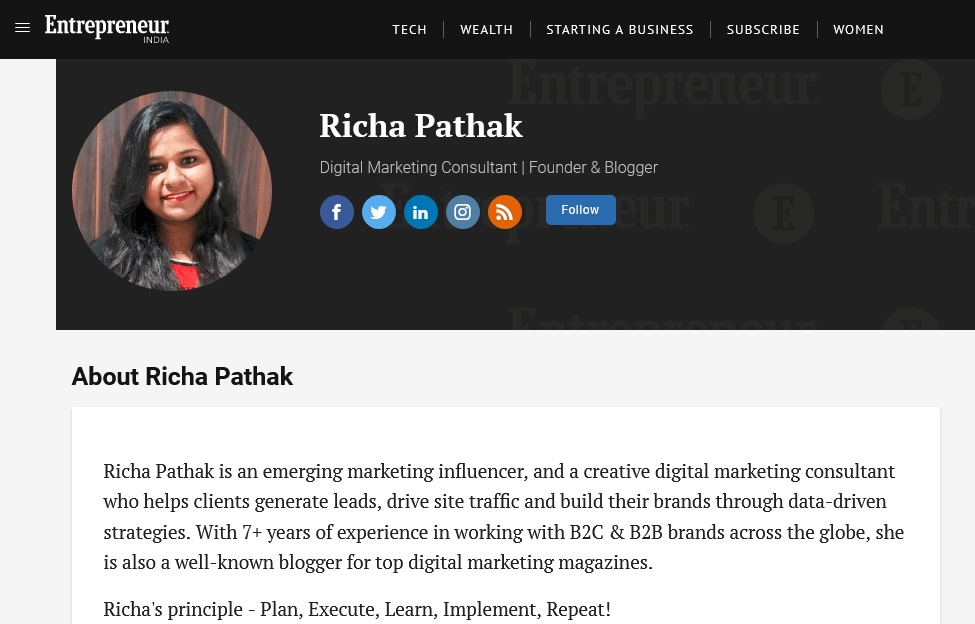If your potential employers were to Google you, what would they find? That is where Personal SEO and Personal branding plays a major role.
More and more employers are turning to search engines to gather information about job applicants.
A 2018 survey revealed that nearly 70% of employers leverage social media when screening candidates during the hiring process.
This goes to show the importance of establishing a (positive) personal brand online. In fact, having no digital footprint is in some ways just as bad as having negative results show up on the first page of Google.
Besides improving your chances of being recruited, your online reputation could play a crucial role when you’re looking to get a pitch approved, win a new client, or be approached by the media for expert opinions.
Managed WordPress Hosting is essential for personal SEO and branding because it provides superior performance, security, scalability, technical support, and SEO-friendly features that are crucial for building and maintaining a successful online presence. By investing in managed WordPress hosting, you can ensure that your website is optimized for search engines, delivers an excellent user experience, and effectively communicates your personal brand to your audience.
What Is Personal Branding And Why Is It Important?
Personal branding involves highlighting your skills and expertise in a positive light. It helps brand you as a thought leader in your niche, generating a large amount of exposure, and making you a valuable asset to any company.

Defining your personal brand is all about highlighting what makes you stand out from your competitors; your personal attributes that reveal what you’re like to work with—and then communicate these attributes via personal marketing content, such as through resumes and LinkedIn profiles, a biography, etc.
So far, we have discussed personal branding from the context of a professional looking to build an online presence to help them get a job. However, the same goes for small business owners, freelancers, contractors, consultants, influencers, artists, and even celebrities. Just as organizations try to rank for branded keywords, you have to rank for your name.
Since personal branding aims to shape how the world perceives you, you need to optimize your content to appear more prominently in relevant search results.
How Does Personal SEO Work?
The aim of personal SEO is two-fold:
- To dominate the first page of Google search results when someone searches for your name, job title, or unique brand attributes.
- Push negative search results off search results and ensure that people find the right information when they look you up online
The foundation of implementing personal SEO is incorporating phrases or keywords (or “hard” skills that you possess) that potential hiring managers and recruiters enter in the Google search bar to find candidates like you.
Personal SEO applies to searches on major search engines and sites like Facebook, LinkedIn, and other searchable social networking and professional sites.

While personal branding focuses on establishing your uniqueness in the market, personal SEO helps you incorporate the same relevant keywords your competitors use to be discovered online. It makes it easier for people looking for you to find you online and puts you in charge of the information they see about you.
Combining Personal SEO and Personal Branding To Resonate with Target Employers
Let’s further explore how you can build a relevant, discoverable online presence by combining personal SEO and personal branding.
#1 Choose Your Personal Brand Name
Your name is the most important keyword for personal SEO.
When people search your name, thousands of your namesakes will likely show up. Therefore, earning a spot for your name can be tricky but not impossible. Brian Dean, Elon Musk, Rank Fishkin, and other accomplished professionals are a prime example of personal SEO. If you google their name, they appear at the top. That being said, it can be really tough to appear at the top for your name, and one way to make it relatively easier is to come up with a personal brand name for yourself.
Choose a catchy, meaningful, and unique personal brand name for yourself, preferably one that incorporates both your name and professional skills.
For instance, YouTuber Stevin John branded himself as Blippi. There are hundreds of Stevin Johns out there, but not many Blippis. Not only is it an easier name to remember, which improves the number of direct searches happening for it, there’s also little to no SEO competition for it. So how can you learn from this example?
Here are some other strategies that can help narrow your search results:
- Nicknames: You can brand yourself with a nickname in parenthesis
- Add a suffix to your name, such as Irene Parker III.
- Include your degree or certification strategically in your name
- Brand yourself using unique initials, for example, William A. Jones
You’ll have to do a little experimentation to see how many Google search results return for a particular name. The fewer the results, the better your chance of earning a spot.
Once you choose a brand name, the key is to be consistent with it across your LinkedIn profile, Twitter, personal website, etc.
#2 Make Your Resume Search-Friendly
LinkedIn is a great platform for increasing visibility, but most people don’t make the most of their LinkedIn profiles.

Make your LinkedIn searchable by taking care of the following SEO optimizations:
- Make sure you fill out Company, Position, and Location details that appear in Google snippets.
- Include relevant keywords in your profile. For instance, if you worked in the field of accounting, incorporate words like “CPA” and “accounting” in the Experience Section, the LinkedIn Summary, and other parts of the profile.
- Customize your account’s public profile URL to include your brand name.
- Ensure your profile’s visibility is set to public.
- Embed SlideShare slides and WordPress blogs. Highlight recommendations from supervisors or past co-workers.
- Link to your personal website (if you have one) and other active social accounts like Twitter.
#3 Expand Your Online Network with a Personal Website
Creating a personal website serves a variety of purposes:
- It’s a great avenue to place your blogs.
- You have an online portfolio that showcases your work.
- It attracts clients for potential freelance work.
Here’s how you can incorporate personal SEO to make your case stronger:
- If possible, include your name in your website’s URL—for example, com.
- Strategically and naturally, include your name in the Meta Title of your homepage.
- Add images of yourself with a relevant title and alt text.
- Make sure you have a dedicated About Us page that sells your brand and is linked to all your active social profiles.
- Include your name and contact information in the footer
- Monitor referring sites and search performance of your website with Google Analytics
#4 Steps to take for Personal SEO
Think of your name/brand name as a keyword and start doing SEO for it accordingly. A step by step approach to personal SEO will go like this:
- Google your name/brand name using incognito mode and see what kind of results you are getting. The total number of results, and the quality of the top ten results, will tell you what kind of competition you are facing.
- Look up the link profile of the top 10 results, their page load speed, the type of website (i.e., personal website, LinkedIn, Instagram, Facebook, etc.)
- Decide exactly what you want to appear when people search for you, i.e., do you want your LinkedIn profile to appear, your Facebook page, your Instagram, your blog, or your website.
- Start optimizing that page with relevant content and use your name/brand name as a keyword. Please put it in the meta tags, h1, and use it where relevant in the paragraph.
- Create a link building strategy and make sure you get high-quality links pointing to your page.
- Track your progress weekly through a keyword rank tracker and see how your strategy is working out.
Most of the off-page and on-page SEO strategies that work for other keywords will work for personal SEO.
Similarly, any practice that’s considered black hat or grey hat in regular SEO is considered the same in personal SEO. In short, personal SEO is regular SEO, where the keyword you are trying to rank for is your name.
#5 Win With High-Quality Content Creation
Blogging and guest blogging is an excellent way of building a strong reputation within your niche.

Focus on publishing unique and authoritative content that will drive people to subscribe to your daily blogs. Follow Google’s Search Quality Evaluator Guidelines to publish valuable and high-quality content.
Pro tip: Make sure each post has a dedicated About the Author section that links back to your profile to build relevancy and the strength of your profile page in search rankings.
Additionally, try to incorporate multiple types of content beyond personal mentions and social profiles to expand your network. Tag professional photos with your name, publish infographics, video content, and conduct video business interviews to really get your name—and your brand—out there.
Conclusion
Creating a brand for yourself with the help of personal SEO is all about smartly showcasing your unique attributes and achievements and creating positive impressions on viewers.





